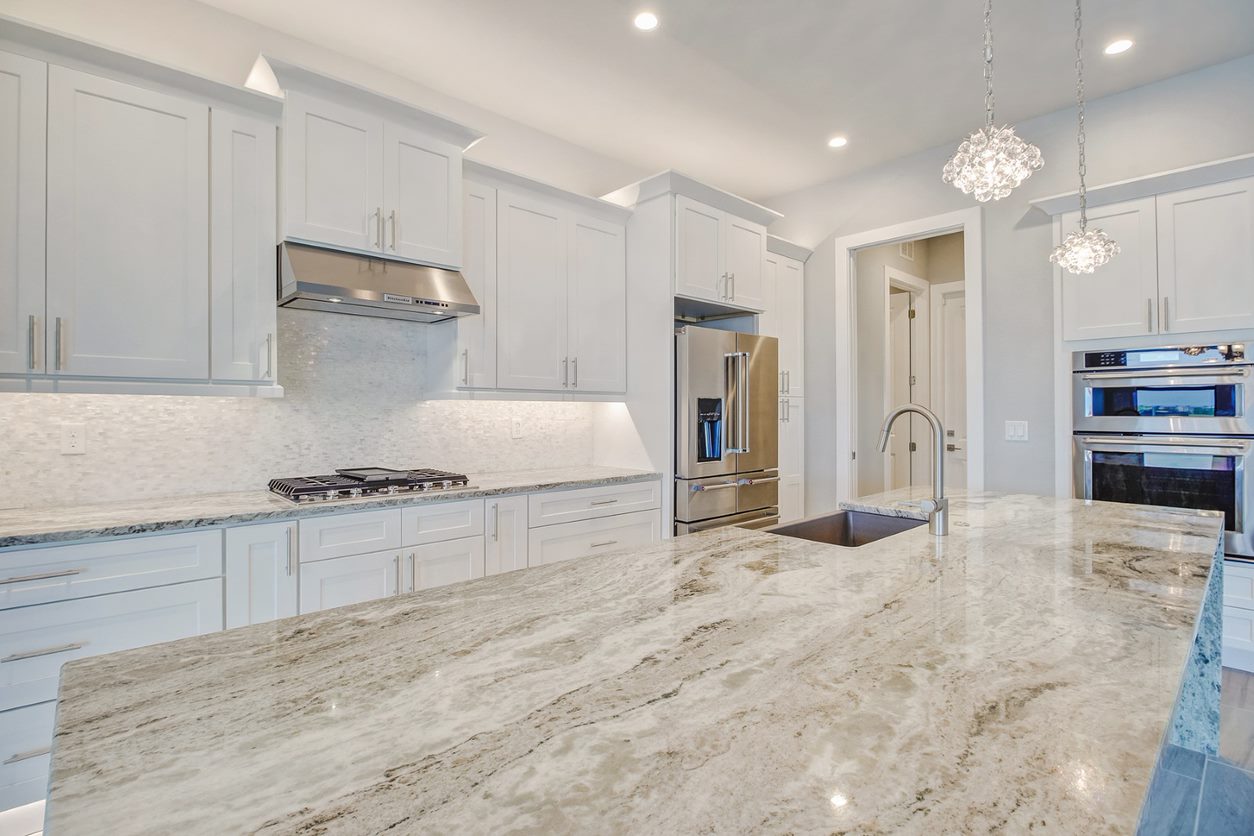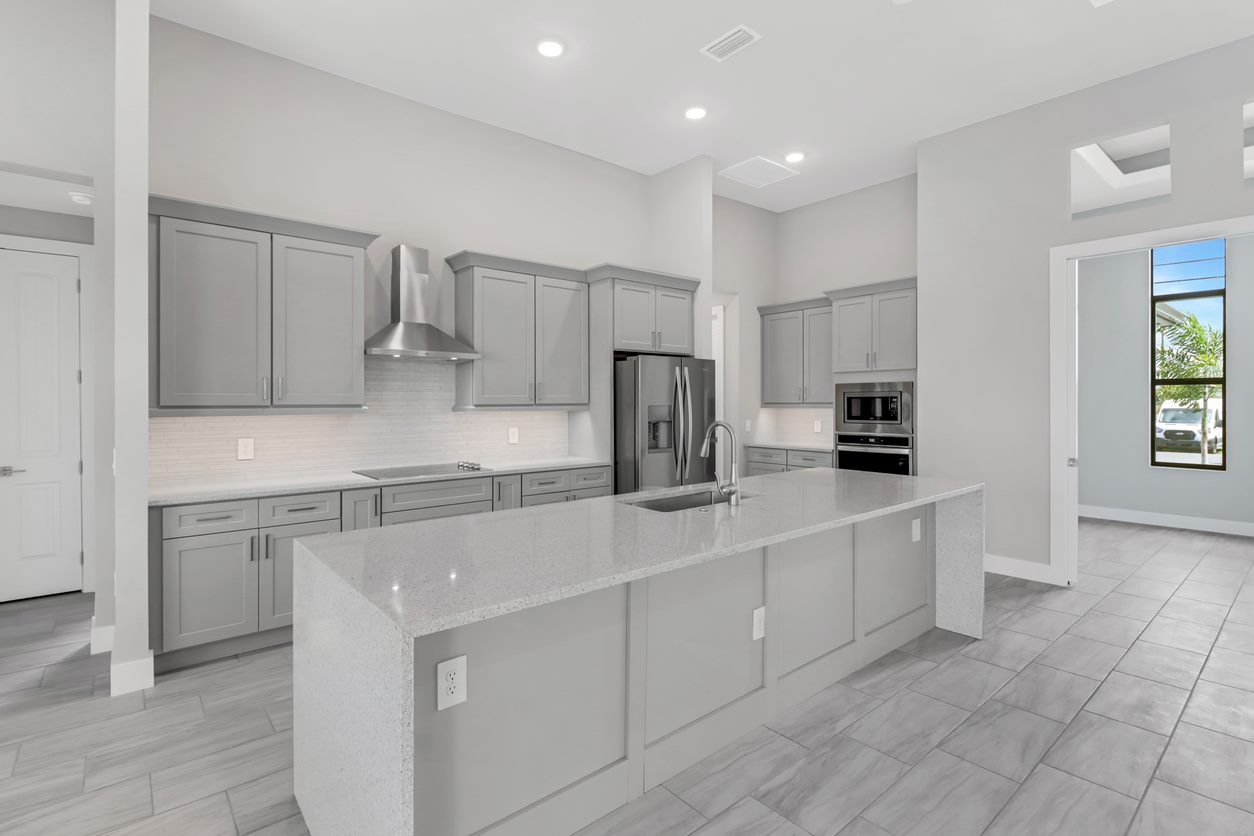Kitchens are the gathering place for families, friends, and entertainment. So much of the activity centers in and around the kitchen, from meal preparation and cooking to dining. Planning the best material for your new home can seem daunting and confusing. Currently the two most popular and prominent materials for countertops are granite and quartz. Let’s look at some of the characteristics of each and guide you toward the best decision for your home. A choice that contributes to not only the unique design of your home but compliments your lifestyle and is a good investment.
Granite
First let’s look at Granite. Granite is a natural stone. This means it has been mined, quarried, cut into slabs, polished, and fabricated into countertops. Every slab of granite is slightly different in color and pattern, making each countertop unique, so the possibilities are virtually endless. The drawback to this is there can also be huge differences between the small sample you pick in the showroom and the slab your countertops are made from. If you are trying to coordinate your countertops with your decorative backsplash and flooring this can be difficult. Granite is porous, which is why most fabricators recommend additional protection from staining. Sealing the stone with a penetrating sealer is a common option. Since it is a porous material, without sealing the stone, it will absorb liquids and possibly stain. It has been said that granite is more heat resistant than quartz, but this is simply not true. Protection from anything hot should be used with Granite countertops. Granite countertops are also approved for outdoor applications.
Quartz
Secondly let’s look at Quartz. Quartz countertops are made from natural quartz stone, one of the hardest minerals on earth. The natural quartz material is mixed with resin and proprietary materials to make it stronger and non-porous. One of the main benefits of quartz countertops is that they are extremely durable. Quartz countertops never have to be sealed, unlike granite surfaces that require regular maintenance. Quartz countertops are also nonabsorbent, so they resist staining and don’t harbor harmful bacteria. Homeowners and designers choose quartz for its versatile and beautiful designs which are consistent throughout all sizes. Quartz countertops are scratch resistant, but due to their hardness they may dull a knife that is used directly on the surface. Like all natural stone countertops, quartz can be damaged by sudden changes in temperature. Potholders and trivets should be used to protect a quartz countertop from heat. Though quartz countertops are not approved for outdoor use, quartz may be used in outdoor kitchens with full overhead coverage from the elements.

